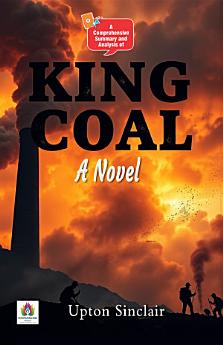A Comprehensive Summary and Analysis of King Coal A Novel: Demanding Ebook Book
About this ebook
As Hal immerses himself in the daily struggles of the miners, he witnesses firsthand the backbreaking labor, unsafe working conditions, and the oppressive control of the mining companies. He befriends the workers and becomes increasingly aware of the systemic corruption, including the manipulation of wages and the violent suppression of union efforts. Hal's journey becomes a battle for justice and human dignity as he risks his own safety to advocate for the miners' rights.
Upton Sinclair masterfully exposes the dark underbelly of industrial America through Hal’s transformation from a privileged outsider to a passionate activist. King Coal is more than a story of labor rights — it’s a searing indictment of corporate greed, social injustice, and the human cost of industrialization. Sinclair’s vivid storytelling and sharp social critique make King Coal a timeless and influential work that continues to resonate with readers exploring themes of economic inequality and social reform.
About the author
Upton Sinclair, the acclaimed author of King Coal, is known for his groundbreaking works that expose the harsh realities of industrial America and advocate for social justice. Born in the early Progressive era, Sinclair used his writing to highlight issues of economic inequality, corporate greed, and labor rights. In King Coal, Sinclair delves into the oppressive conditions of the American coal industry, portraying the struggles of miners facing dangerous working conditions and class conflict. Through Hal Warner’s journey from privilege to activism, Sinclair critiques capitalism and exposes the impact of industrialization on the working class. Sinclair’s exploration of union struggles, political corruption, and the fight for economic justice makes King Coal a powerful and influential work in the canon of American history and social reform. Sinclair’s writing remains a testament to the enduring fight for worker’s rights and the human cost of labor exploitation.






